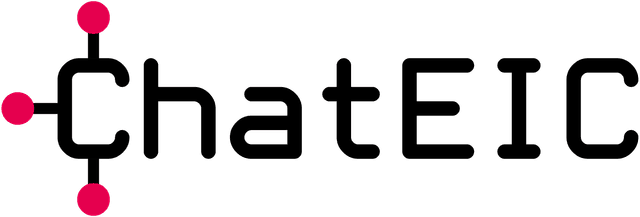
All Eligible EIC Accelerator Countries (including the United Kingdom, Switzerland and Ukraine)
- This article was updated in December 2024 -
The EIC Accelerator funding (grant and equity, with blended financing option) by the European Commission (EC) and European Innovation Council (EIC) supports all EU member states including a variety of associated countries.
Startups and Small- and Medium-Sized Enterprises (SME) from eligible countries are able to obtain up to €2.5 million in grant and €10 million in equity financing per project (€12.5 million total).
This article presents a list of eligible countries that may apply to the EIC Accelerator according to the communication by the European Union (see List of Participating Countries in Horizon Europe) and the EIC Accelerator Work Programme (see Annex 2 “General conditions for proposals”, B “Eligibility”).
1. EU-27 Member States
The following countries are eligible to apply to the EIC Accelerator and Horizon Europe as member states of the European Union:
- Austria
- Belgium
- Bulgaria
- Croatia
- Republic of Cyprus
- Czech Republic
- Denmark
- Estonia
- Finland
- France
- Germany
- Greece
- Hungary
- Ireland
- Italy
- Latvia
- Lithuania
- Luxembourg
- Malta
- Netherlands
- Poland
- Portugal
- Romania
- Slovakia
- Slovenia
- Spain
- Sweden
2. Associated Countries
Associated countries are third countries that are not EU member states but have decided to participate in the Horizon Europe program (incl. the EIC Accelerator). This allows entities established within their borders to obtain funding in the same manner as member-state entities.
2.1 Association Agreements with Legal Effect
- Albania
- Armenia
- Bosnia and Herzegovina
- Faroe Islands
- Georgia
- Iceland
- Israel
- Kosovo
- Moldova
- Montenegro
- North Macedonia
- Norway
- Serbia
- Tunisia
- Turkey
- Ukraine
2.2 Transitional Association Arrangements
- Morocco: Applicable for the entire Horizon Europe Programme including the EIC Accelerator.
- New Zealand: Applicable for Horizon Europe Pillar II 'Global Challenges and European Industrial Competitiveness' (but not Pillar III, thereby excluding EIC Accelerator participation)
- United Kingdom: Applicable for the entire Horizon Europe Programme except for the EIC Fund. This means that UK entities may only apply for the “grant-only” EIC Accelerator (see EIC Accelerator Explained)
- Switzerland: Associated with Horizon Europe including the EIC Accelerator since 2025 (see Updates here and here)
3. Other Third Countries
There are a variety of third countries that have, in some cases, been associated with European funding programs in the past but have decided to not participate in Horizon Europe or the EIC Accelerator.
These countries are:
- Liechtenstein: Currently not associated with Horizon Europe
4. Overseas Countries and Territories (OCTs) Linked to Member States
Since there are territories that are implicitly linked to EU member states, these are eligible for funding under the same conditions as the member states they are linked to according to the EIC:
- Aruba (Netherlands)
- Bonaire (Netherlands)
- Curação (Netherlands)
- French Polynesia (France)
- French Southern and Antarctic Territories (France)
- Greenland (Denmark)
- New Caledonia (France)
- Saba (Netherlands)
- Saint Barthélemy (France)
- Sint Eustatius (Netherlands)
- Sint Maarten (Netherlands)
- St. Pierre and Miquelon (France)
- Wallis and Futuna Islands (France)
5. Low- to Middle-Income Countries
Interestingly, Horizon Europe and the EIC both list low-income countries as eligible for funding by default. Still, these countries are not eligible for mono-beneficiary programs such as the EIC Accelerator but can be eligible for consortium projects in other EIC and Horizon Europe programs under certain conditions.
- Afghanistan, Algeria, Angola, Argentina, Azerbaijan, Bangladesh, Belarus, Belize, Benin, Bhutan, Bolivia, Botswana, Burkina Faso, Burundi, Cabo Verde, Cambodia, Cameroon, Central African Republic, Chad, Colombia, Comoros, Congo (Democratic Republic), Congo (Republic), Costa Rica, Côte d'Ivoire, Cuba, Djibouti, Dominica, Dominican Republic, Ecuador, Egypt (Arab Republic), El Salvador, Equatorial Guinea, Eritrea, Eswatini, Ethiopia, Fiji, Gabon, Gambia, Ghana, Grenada, Guatemala, Guinea, Guinea-Bissau, Guyana, Haiti, Honduras, Indonesia, Iran (Islamic Republic), Iraq, Jamaica, Jordan, Kazakhstan, Kenya, Kiribati, Korea (Democratic People's Republic), Kyrgyz Republic, Lao (People’s Democratic Republic), Lebanon, Lesotho, Liberia, Libya, Madagascar, Malawi, Malaysia, Maldives, Mali, Marshall Islands, Mauritania, Mauritius, Micronesia (Federated States), Mongolia, Morocco, Mozambique, Myanmar, Namibia, Nepal, Nicaragua, Niger, Nigeria, Pakistan, Palestine6, Papua New Guinea, Paraguay, Peru, Philippines, Rwanda, Samoa, São Tomé and Principe, Senegal, Sierra Leone, Solomon Islands, Somalia, South Africa, South Sudan, Sri Lanka, St. Lucia, St. Vincent and the Grenadines, Sudan, Suriname, Syrian Arab Republic, Tajikistan, Tanzania, Thailand, Timor-Leste, Togo, Tonga, Tunisia, Turkmenistan, Tuvalu, Uganda, Ukraine, Uzbekistan, Vanuatu, Venezuela (Bolivarian Republic), Vietnam, Yemen Republic, Zambia and Zimbabwe.
Due to the war in Ukraine, entities from Belarus and non-government-controlled areas of Ukraine are not eligible for funding.
Note: Some non-EU countries can be eligible for EIC Accelerator Step 1 applications but still lack access to Step 2 and 3 or the EIC Accelerator funding (see Eligible Applicants).
These tips are not only useful for European startups, professional writers, consultants and Small and Medium-Sized Enterprises (SME) but are generally recommended when writing a business plan or investor documents.
Deadlines: Post-Horizon 2020, the EIC Accelerator accepts Step 1 submissions now while the deadlines for the full applications (Step 2) under Horizon Europe are listed below. The Step 1 applications must be submitted weeks in advance of Step 2. The next EIC Accelerator cut-off for Step 2 (full proposal) can be found here. After Brexit, UK companies can still apply to the EIC Accelerator under Horizon Europe albeit with non-dilutive grant applications only - thereby excluding equity-financing. Switzerland has resumed its participation in Horizon Europe and is now eligible for the EIC Accelerator.
EIC Accelerator Step 1 Deadline 2025
Contact: You can reach out to us via this contact form to work with a professional consultant.
AI Grant Writer: ChatEIC is a fully automated EIC Accelerator grant proposal writer: Get it here.
EIC Accelerator: EIC Accelerator delivers flexible funding options including blended finance (€2.5M grant + €0.5M-€10M equity), grant-only (up to €2.5M), or equity-only arrangements for scale-up and market deployment of breakthrough innovations. The initiative targets SMEs, start-ups, and small mid-caps with up to 499 employees. Technology areas include Biotech, Engineering, Artificial Intelligence, Energy, Quantum, Aerospace, Advanced Materials, and Semiconductors. Get Started
EIC Pathfinder: EIC Pathfinder delivers up to €3 million for Open calls and up to €4 million for Challenge-based calls to support early-stage research and development with proof-of-principle validation. The initiative requires research consortia with a minimum of 3 partners from 3 different countries, including universities, research organizations, and SMEs. Primary technology focus areas include Health/Medical, Quantum Technologies, AI, Environmental/Energy, and Advanced Materials. Get Started
EIC Transition: EIC Transition delivers up to €2.5 million in funding to overcome the 'valley of death' gap between laboratory research and market deployment, emphasizing technology maturation and validation. The initiative supports single legal entities or small consortia of 2-5 partners including SMEs, start-ups, spin-offs, and research organizations. Key technology domains include Health/Medical Technologies, Green/Environmental Innovation, Digital/Microelectronics, Quantum Technologies, and AI/Robotics. Get Started
EIC STEP Scale-Up: EIC STEP Scale-Up delivers significant equity investments of €10-30 million for established deep-tech companies prepared for hyper-growth and large-scale expansion. The initiative targets SMEs or small mid-caps with up to 499 employees who have obtained pre-commitment from qualified investors. Primary focus areas include Digital & Deep Tech (Semiconductors, AI, Quantum), Clean Technologies for Net-Zero objectives, and Biotechnologies. Get Started
EIC Pre-Accelerator: EIC Pre-Accelerator represents a pilot initiative delivering €300,000-€500,000 in funding for early-stage deep-tech development and preparation for the EIC Accelerator program. This program is exclusively accessible to single SMEs or small mid-caps from 'Widening countries' to foster regional innovation development. The initiative encompasses deep-tech innovations across physical, biological, and digital domains. Get Started
EIC Advanced Innovation Challenges: EIC Advanced Innovation Challenges represents a new pilot initiative delivering €300,000 (Stage 1) and up to €2.5 million (Stage 2) for breakthrough deep-tech innovations through ARPA-style staged funding mechanisms with integrated demand-side engagement. This initiative targets single entities or small consortia (2-3 partners) including SMEs, start-ups, and research organizations. Primary focus areas include Physical AI for autonomous robotics applications and New Approach Methodologies (NAMs) for animal-free biomedical testing, with TRL 4 entry requirements and demonstrated end-user commitment. Get Started
Eureka Network: The Eureka Network delivers various international collaborative R&D initiatives such as Network Projects, Clusters, Eurostars, Globalstars, and Innowwide, providing funding from €50K to €6.75M per project based on the specific initiative. This network emphasizes market-driven innovation and deep-tech advancement across multiple technology sectors including ICT/Digital, Industrial/Manufacturing, Bio/Medical Technologies, Energy/Environment, Quantum, AI, and Circular Economy. Eligible participants include SMEs, large enterprises, research organizations, universities, and startups, with Eurostars particularly focused on R&D-performing SMEs. Get Started
Eurostars: Eurostars represents a joint EU-Eureka initiative delivering €50K-€500K for international R&D collaboration specifically led by SMEs. The program adopts a bottom-up approach, accepting projects from all technology fields without predefined thematic restrictions. R&D-performing SMEs must lead the consortium and demonstrate significant R&D activities. Get Started
Innovation Partnership: Innovation Partnership enables collaborative innovation between public and private sectors with typical funding of €1-5 million per project. The initiative supports cross-sectoral strategic technologies through public-private partnerships and consortia. Projects concentrate on addressing societal challenges through collaborative innovation approaches. Get Started
Innovation Fund: The EU Innovation Fund delivers substantial funding of €7.5 million to €300 million for large-scale demonstration of innovative low-carbon technologies. The initiative targets clean energy, carbon capture, renewable energy, and energy storage technologies to accelerate the transition to a low-carbon economy. Eligible participants include large companies, consortia, and public entities capable of implementing large-scale demonstration projects. Get Started
Innovate UK: Innovate UK delivers various programs with funding ranging from £25K to £10M depending on the specific initiative, supporting business-led innovation, collaborative R&D, and knowledge transfer. The organization funds projects across all sectors with particular emphasis on emerging technologies and supports UK-based businesses, research organizations, and universities. Programs are designed to drive economic growth through innovation and technology commercialization. Get Started
Industrial Partnership: Industrial Partnership delivers €2-10 million in funding for industrial research and innovation partnerships focusing on manufacturing, industrial technologies, and digital transformation. The initiative supports industrial consortia and research organizations in developing collaborative solutions for industrial challenges. Projects aim to strengthen European industrial competitiveness through strategic partnerships. Get Started
LIFE Programme: The LIFE Programme delivers €1-10 million in funding for environmental protection, climate action, and nature conservation projects across the European Union. The initiative supports environmental technologies, climate adaptation strategies, and biodiversity conservation initiatives. Eligible participants include public authorities, private companies, NGOs, and research institutions working on environmental and climate challenges. Get Started
Neotec: Neotec represents a Spanish initiative delivering €250K-€1M in funding for technology-based business creation and development, supporting the growth of innovative Spanish SMEs and start-ups. The program covers all technology sectors and aims to strengthen Spain's technology ecosystem. Funding is specifically targeted at Spanish technology-based SMEs and start-ups to enhance their competitiveness and market presence. Get Started
Thematic Priorities: EU Thematic Priorities encompass various programs aligned with EU strategic priorities including green transition, digital transformation, health, and security initiatives. Funding amounts vary based on the specific program and call requirements, with projects designed to address key European challenges. Applicant eligibility varies by specific program and call, with different requirements for different thematic areas. Get Started
Any more questions? View the Frequently Asked Questions (FAQ) section.
Want to see all articles? They can be found here.
For Updates: Join this Newsletter!
